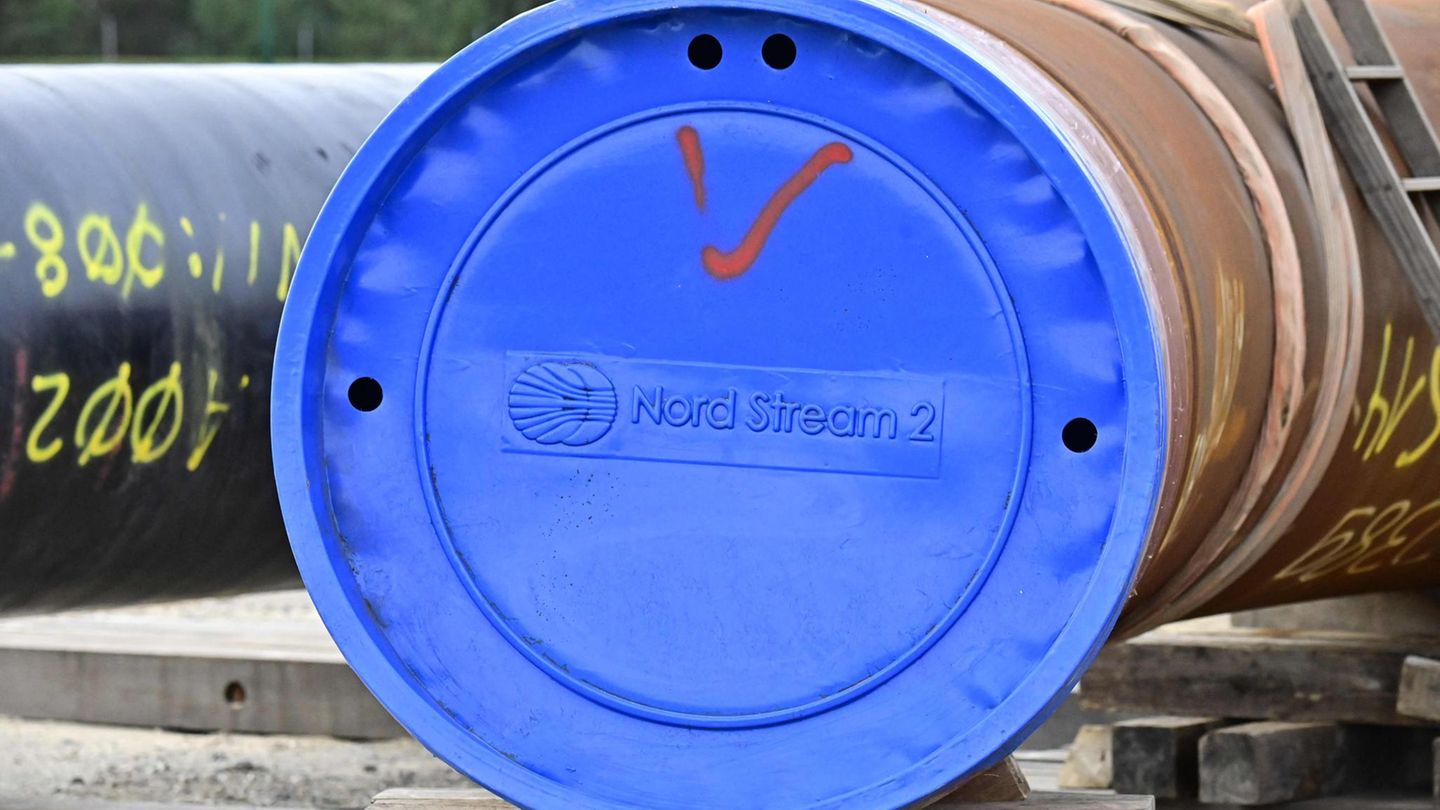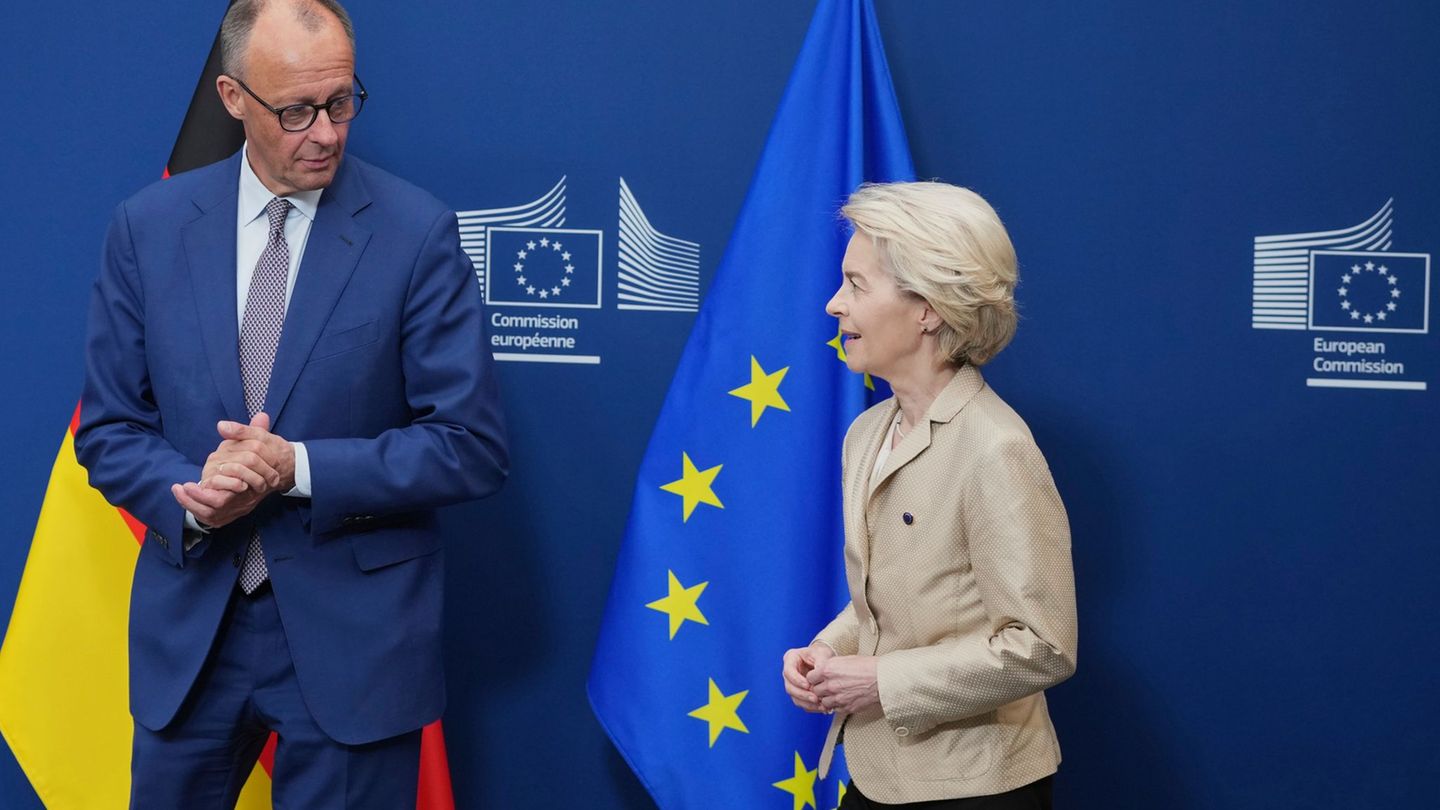The US government is officially still against Nord Stream 2. With the agreement with Germany, however, it has de facto given up resistance to the completion of the pipeline. There is relief in Berlin – but the problems are far from over.
Chancellor Angela Merkel’s visit to US President Joe Biden last week should be all about harmony, but there was always this darned topic Nord Stream 2: The first question from German reporters at the press conference in the White House was again the old point of contention. “Good friends can have different opinions,” Biden replied diplomatically. Less than a week after Merkel’s visit, Berlin and Washington have now announced a breakthrough in the conflict over the Baltic Sea pipeline. The biggest brake on the intended restart in German-American relations has thus been cleared for the time being. The problems associated with the project are not.
The concerns about Nord Stream 2
Both Biden’s Democrats and the Republicans of his predecessor Donald Trump have been storming the pipeline that is supposed to bring Russian gas to Germany for years – bypassing Ukraine, which is dependent on billions in revenue from gas transit. The US sees Nord Stream 2 as a geopolitical project by Kremlin chief Vladimir Putin that could increase Europe’s dependence on Russian gas. Critics also fear that Putin could further destabilize Ukraine as soon as Russia is no longer dependent on her for gas transmission. The transit contract expires in 2024. Construction work on Nord Stream 2 should be completed by the end of next month.
Support with no guarantee of success
At the center of the agreement between Washington and Berlin is support for Ukraine, whose dependence on Russia is to be reduced. In a joint declaration with the USA, Germany is now threatening Russia with sanctions if Moscow uses “energy as a weapon”. However, it is not specified where the red lines are, i.e. which specific behavior would trigger punitive measures. Even in the most important point, the agreement does not offer Ukraine any security: Germany undertakes “to use all available means of influence in order to enable Ukraine’s gas transit agreement with Russia to be extended by up to ten years”. But there is no guarantee of success.
Good day for Ukraine?
The American side tried to sell the compromise as the lesser evil for Ukraine. The US State Department said that a worse scenario would have been had Nord Stream 2 gone into operation without the agreement with Germany and the measures now agreed. “This is a bad situation and a bad pipeline, but we have to help protect Ukraine and I feel that with this agreement we have taken some important steps in that direction,” said US top diplomat Victoria Nuland. The German government’s transatlantic coordinator, Peter Beyer, even spoke of a “good day with good news for Ukraine”.
Threat from Nord Stream 2?
In Kiev, but also in Warsaw, there is a different opinion. In a joint statement, the foreign ministries of Ukraine and Poland warned that the agreement “created a political, military and energy threat to Ukraine and Central Europe”. From the office of Ukrainian President Volodymyr Selenskyj it was said: “The decision on Nord Stream 2 cannot be made behind the back of all those who threaten the project in real terms.” Before Merkel’s visit to Biden, Selenskyj was a guest of the Chancellor in Berlin. The White House announced that Biden would receive the Ukrainian President in Washington at the end of August. Zelenskyi’s worries shouldn’t change anything.
Biden threatens a conflict with Congress
After the compromise with Germany, Biden has to face severe headwinds from the US Congress. The US Parliament passed sanctions laws against Nord Stream 2 by an overwhelming majority of both Republicans and Democrats – and those laws actually provide for mandatory sanctions against companies that participate in Nord Stream 2. The White House assures that the laws will be obeyed. Biden’s government recently refrained from imposing punitive measures on the Swiss Nord Stream 2 AG and its German managing directors – and cited the national interest of the USA as the justification.
“In bed with Putin”
There is no longer any doubt that the pipeline will be completed – at times this seemed to be in question due to the threat of US sanctions. Republican Senator Ted Cruz – Nord Stream 2’s most prominent opponent in the US Congress – spoke of a “geopolitical victory for Putin and a catastrophe for the United States and our allies”. Cruz accused Biden of being “in bed with Putin”. What the Senator from Texas does not mention: His party colleague Trump would have had a far better chance of preventing the pipeline, which was almost completed when Biden took office in January. Trump’s government hesitated until their very last day in office to impose the first sanctions.
Way out of the “political trap”
After years of dispute, there is relief in Berlin over the agreement with the USA on Nord Stream 2. However, Europe expert Julia Friedlander from the Atlantic Council think tank points out that the deal with Washington is not enough – for the federal government is only just beginning the real work. Friedlander says the agreement that has now been reached was the only sensible way out of a “political trap” that Germans and Americans had set for themselves over the years. The expert is also convinced: “Washington has mistakenly turned a European problem into an American one.”
Jane Stock is a technology author, who has written for 24 Hours World. She writes about the latest in technology news and trends, and is always on the lookout for new and innovative ways to improve his audience’s experience.




